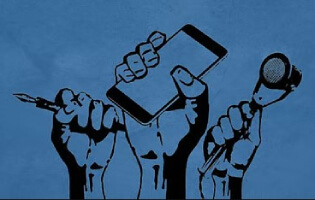Politics never clocks out; it trails us into PTA meetings, flickers through neighborhood group chats, and lands on our dinner tables. In that nonstop swirl, opinion writing is the rare pause button. When we slow the rush of headlines, we can weave context and lived experience into raw facts, revealing where public policy rubs against ordinary life. The pause lets us test ideas, challenge assumptions, and trace the cultural currents that power every debate.
The Role of Opinion in Society

Imagine the commentary page as our bustling town square, built from ink and pixels. Straight news lays the foundation—who, what, when, where. Opinion adds the essential why. By filtering events through values, history, and evidence, we sharpen collective thinking and keep power honest. Asking “Have we really thought this through?” pries open blind spots and can jolt policy off dead center. Strong commentary also hands a megaphone to voices the front page may overlook, surfacing problems before they flare into crises. A probing essay on housing, for instance, can signal an affordability crunch months before official figures appear. Repeated over time, such pieces reinforce the civic habit of interrogating authority—another brick in the foundation of an informed, engaged democracy.
The Strength of Different Viewpoints

Democracy thrives when many voices harmonize rather than one dominating. By welcoming scholars, organizers, caregivers, artists, and first-time voters to write side by side, we keep groupthink on a short leash and nudge readers outside their own experience. These essays bottle life on the ground: the ache of a strike marcher’s feet, the fine print parsed by a constitutional lawyer, the strain of an overnight shift in an underfunded hospital. Sharing these vantage points cultivates empathy across ideological lines and reminds us that policy is never abstract. Even when consensus proves elusive, the very act of giving disagreement respectful air strengthens the democratic muscle.
The Future of Socio-Political Commentary
Opinion writing morphs as swiftly as the society it critiques. Today the entire internet acts as a comment section, sweeping away old editorial gates and letting anyone publish—and be challenged—in real time. That velocity lifts fresh perspectives yet turbocharges echo chambers and rumor mills. Our response must be rigor. We triple-check facts, lay bare sources, and draw bright lines between evidence and judgment. At the same time, we experiment with new formats—data visuals, audio essays, interactive explainers—to meet readers where they scroll. Done right, tomorrow’s commentary will keep framing the headlines, prompting hard questions, and sustaining a vibrant public square. The next generation should inherit not a cacophony of isolated takes, but a chorus capable of harmonizing progress.
Read Articles

Digital Platforms and the Limits of Free Speech
In the emergence of the digital era, it has become clear that the right to free speech is essential. However, for individuals, freedom of speech extends beyond merely having the power to share their thoughts, ideas, and views without fear of censorship or reprisal. Unfortunately, it also brings its own challenges, especially as the world becomes increasingly connected. Technology will continue to advance, as will the science of communication.
Read More
Free Speech and Control on the Internet – Getting Silenced Online
Currently, the global trend is for the internet to oversee most of public communication, social discourse, politics, entertainment, and many other social activities, even shaping people’s identities. The further expansion of digital networks inevitably increases the amount of content that needs to be moderated online. At the heart of this worldwide debate lies a contentious issue: if platforms intervene to protect users from abuse, is this ultimately for the benefit of society or at its expense?
Read More